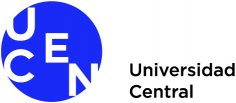
For 2023, we have added the "Diploma in Statistical Analysis of Health Data,” the “Diploma for Improvement in Clinical Psychology for Children and Adolescents," and the "Postgraduate course in Psychological Assessment and Intervention in children and adolescents in Contexts of Vulneration.”

Director: Dr.Francisco León
The professional training of the Master program in Social Bioethics and Public Health of the Central University of Chile has been enriched by academics with outstanding experience who know and actively participate in health care. In this context, the Master's program in Social Bioethics and Public Health at our University seeks to train health professionals capable of discerning the ethical criteria in clinical decisions, seeing the human aspects of health care, and treating users of the health system humanely. This post-graduate professional will be capable of providing technical and scientific quality care, and at the same time, show a deep respect for the person, competent to carry out research with ethical criteria and innovate by making proposals for improvement in the different fields of public and private health.
Director: Mg. Carolina Moraga
Chile presents an advanced stage of demographic aging, which constitutes a challenge not only for the government but also for everyone linked to old age and aging from our different roles. In this context, the Master's program in Approaching the Elderly and Aging of the Central University of Chile aims to support the development of professionals with a reflective look at old age and aging, which allows them to develop skills for a comprehensive approach to the elderly population and social phenomena linked to this stage of the life course. Graduates from this program will be able to apply geronto-geriatric knowledge from a life trajectory approach with a legal perspective, allowing them to respond effectively to the socio-sanitary system's challenges in current society concerning the elderly population. To this end, the program has been endowed with a body of academics with outstanding professional careers in the academic, public, and clinical fields and civil society.
This program aims to become a space for training professionals who are agents of change regarding understanding and addressing aging and old age in Chile.
Director: Mg. Carolina Pezoa
This program is aimed at professionals who wish to develop skills to manage the school climate and coexistence and promote adequate interaction between the different actors in the educational community. It is specifically oriented towards the design and application of psycho-socio-educational strategies to be developed both at the classroom level and in the specific educational and organizational context. The main focus is to improve school coexistence management practices based on evidence-based practices.
Director: Mg. Marcia Salinas
This Master's program installs skills in producing knowledge, therapeutic intervention, and research, contributing to the discipline from a dialogic systemic matrix and its applications to the mental health field and other contexts of clinical psychology action. The program provides clinical training to strengthen therapeutic skills that contribute to the work in the Person of the Psychologist and the Clinical Supervision of therapeutic interventions. It allows the graduate to move towards improving their professional field in a collaborative framework, which enables them to contribute to their specialty. This is a Dialogic Systemic approach program endorsed by the Spanish Association of Collaborative and Dialogic Practices.
Director: Dr. Gonzalo Soto
The Master's program in Gender Studies and Psychosocial Intervention aims to train professionals who can contribute to the development of Psychosocial Intervention from a gender perspective, as well as feminist and gender studies in the fields of teaching, public policy formulation, creation and management of social programs and projects, intervention, evaluation, and research. These professionals in the field of psychosocial intervention have extensive and up-to-date knowledge in the field of planning, management, intervention, and research, using a solid theoretical perspective that allows for a complex and well-argued understanding of the Contributions of feminist and gender theories to the social sciences both at a theoretical and applied level. They will also be able to incorporate and apply studies and categories as an especially plausible theoretical-political tool when thinking and acting in the field of psychosocial intervention. On the other hand, graduates will be capable of designing, implementing, and assessing projects, preparing and proposing public policies and social programs and projects, and incorporating models and solutions to psychosocial problems based on their analysis and research.
This Drug Addiction Intervention program is the answer to the lack of postgraduate alternatives in drug addiction on a national scale and the complex individual and social repercussions of this problem. When dealing with a social phenomenon affected by the transformations of drug addiction as well as its judiciary, we find the need to define the competencies of the graduation profile of our students and the contents taught in our study plan, as well as the respective updates to promote and develop transformative actions that respond to the needs of today's society. The program aims to train professionals who question previous knowledge, rigid thinking, and stereotypes, developing skills and abilities that allow them to support organized and inclusive responses to the social phenomenon of drugs and the actors involved in various contexts, social and institutional spaces, and communities.